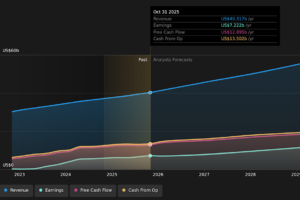This article is reprinted by permission from NextAvenue.org.
In May, 2019, Joan and Steve Reid, both 67, retired and moved from the affluent New York City suburb of Pearl River, N.Y., to the oceanfront community of Vero Beach, Fla. Their aim: retiring on a shoestring. It’s a goal many new retirees share, but one that can be tricky to accomplish.
“We wanted a slower environment, near beaches,” says Joan Reid, who worked as a freelance writer and part-time public library clerk. “The neighborhoods are quiet and it’s slower paced and friendly — with lots of natural beauty.” Steve Reid is a mixed-media artist who hasn’t earned any income from his art in the past two years.
Their monthly income includes total gross Social Security benefits of $2,082 ($1,786 net, after Medicare Parts A, B, and D deductions). The Reids also both collect small pensions, totaling $257 a month. All told, their 2018 gross income was $30,000.
How they define being rich
“We are not rich except in friendships, our art, our families and our souls,” says Joan Reid. She expresses these themes in her poetry and in the daily gratitude lists she exchanges with a friend.
In Pearl River, the couple rented a one-bedroom apartment. They have a 10-year-old car valued at $7,500 (which they received as a gift), but no savings or investments. Ongoing debt is an issue, and one reason the Reids chose to retire.
“We’re paying down two credit cards on fixed arrangements made with the card companies (total credit card debt: $4,000),” Joan Reid explains. “Doctor copays are the killer without supplemental insurance, which we cannot afford. We pay down our debts with monthly payments, which add up to $266 a month.”
When moving, the Reids downsized their belongings, paying a mover to transport just Steve’s artwork and their clothes, books and bicycles. They drove the 1,165 miles to Vero Beach, a two-day trek costing $380.
In Vero Beach, the Reids plan to find jobs to supplement their income. “We’re thinking of part-time work, less than 10 hours per week for each of us, at minimum wage jobs.” Joan is looking into teaching poetry workshops.
 iStock/Getty Images
iStock/Getty Images
Now, their rent in a Vero Beach retirement community is $800 a month, about 20% less than the $1,025 they paid in Pearl River. The Reids expect their utility bills will be about the same as in New York and that some medical copays may now be a little higher. But they anticipate car insurance will be $40 less a month and are determined to find ways to keep expenses down. For instance, Steve Reid visits scrapyards for art materials and purchases paint only when on sale. (A list of what the couple is doing to save money, and what they recommend others try, appears at the end of the story.)
What financial advisers suggest
Adam Day, a certified financial planner and retirement income certified professional in Cincinnati, suggests others planning to retire on a shoestring create a detailed spending plan. That’s especially true, he says, for people with little or no savings.
“When there is little money to go around you have to have a very diligent plan on how, when and what you are going to spend it on.”
Also read: The 10 commandments of retirement
The first step is to list your non-negotiables, “the things in your life that bring you the most joy or align with your inner core values,” Day says. “Then, take everything that isn’t a nonnegotiable and determine emotionally and behaviorally that you won’t be spending money on them.”
Food may be a nonnegotiable item, but how much you pay for it and where you get it can be. Rather than having lunch in a restaurant regularly, you might instead grab a sandwich and fruit and eat in the park, Day notes. The Reids now eat at home 99% of the time.
Day suggests people planning to retire on a shoestring find creative ways to live frugally. “That means banking with the cheapest bank, renting at the cheapest condo, not having a TV or at least no cable, and exercising outside instead of joining a gym or playing golf.”
It’s important to consider intangible and nonfinancial aspects to your life, too. “I think if you can really get to the core of someone’s values, what makes them happy in retirement doesn’t take a lot of money. And after you determine that, it’s easy to make cheaper day-to-day choices,” says Day.
Denver-based certified financial planner Kaleb Paddock suggests finding opportunities to “volunteer your time and invest in relationships in your community. You’re going to have more time on your hands and filling that time investing in people and experiences is going to be more fulfilling than spending money on ‘stuff.’”
Read next: The money in your 401(k) and IRA accounts doesn’t belong entirely to you
Money-saving tips from the Reids
The Reids have their own tips on how to live on a budget in retirement without sacrificing happiness:
- Cut your own hair
- Do your own manicures
- Watch movies from the library, on DVDs or on your laptop
- Don’t pay for cable TV
- Find an inexpensive mobile phone carrier that includes internet access
- Try to have no more than one car
- Take advantage of free concerts, events at libraries and religious institutions, bike rides and walks
- Forgo credit cards as much as possible
- Shop for clothes and household items at Goodwill and Salvation Army
- Eat a mostly plant-based diet (The Reids eat red meat about once a month and can make a chicken last for four meals, plus homemade soup. They eschew the empty calories and expense of chips, cakes, cookies, candy, ice cream and fast food.)
- Avoid alcohol and smoking
- Take advantage of your location’s natural surroundings
Look for free college classes to keep learning. In several states, adults 60 and over can attend public colleges tuition-free, as space allows.
A freelance writer since 1990, Debbie L. Miller lives in Brooklyn, New York where she also pens plays, monologues, short stories, memoir, and humor pieces. She won the 2017 Mona Schreiber Prize for Humorous Fiction and Nonfiction.
This article is reprinted by permission from NextAvenue.org, © 2019 Twin Cities Public Television, Inc. All rights reserved.









